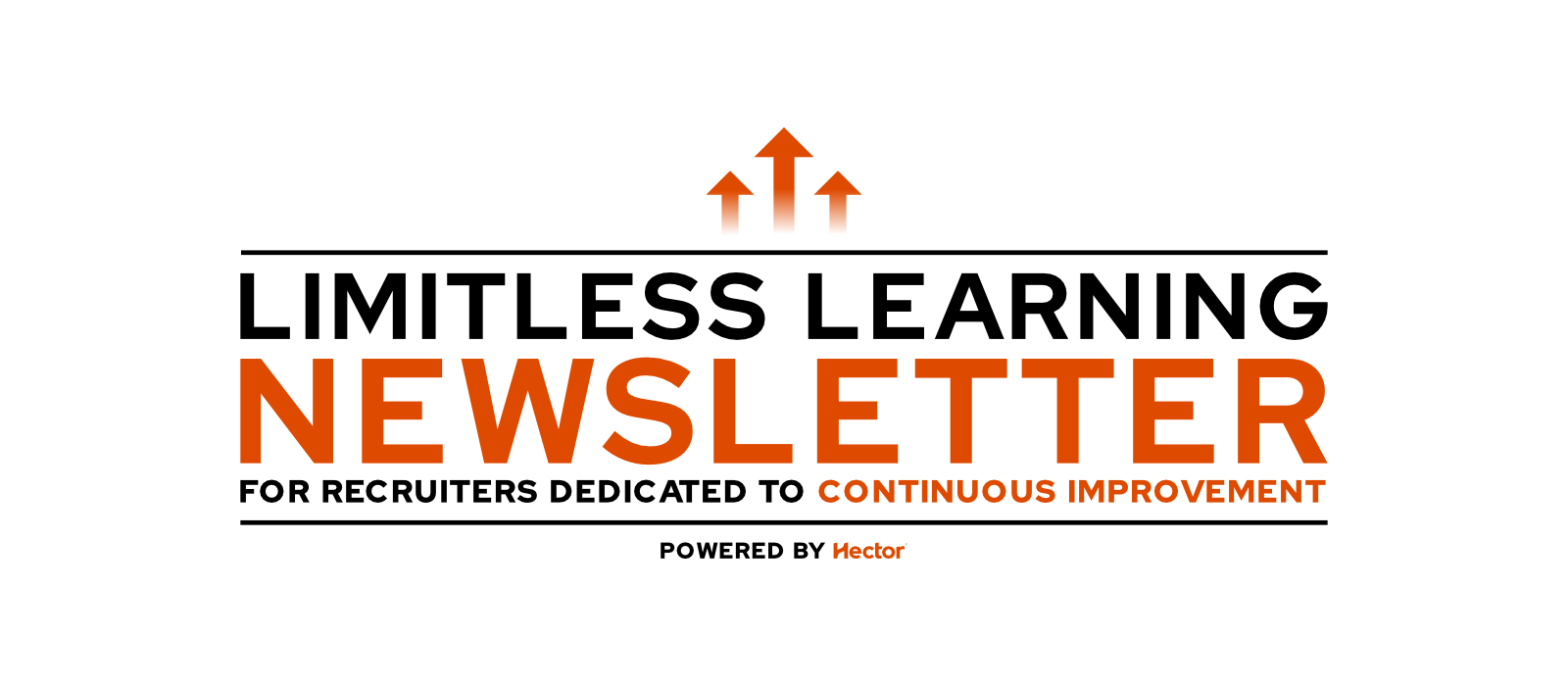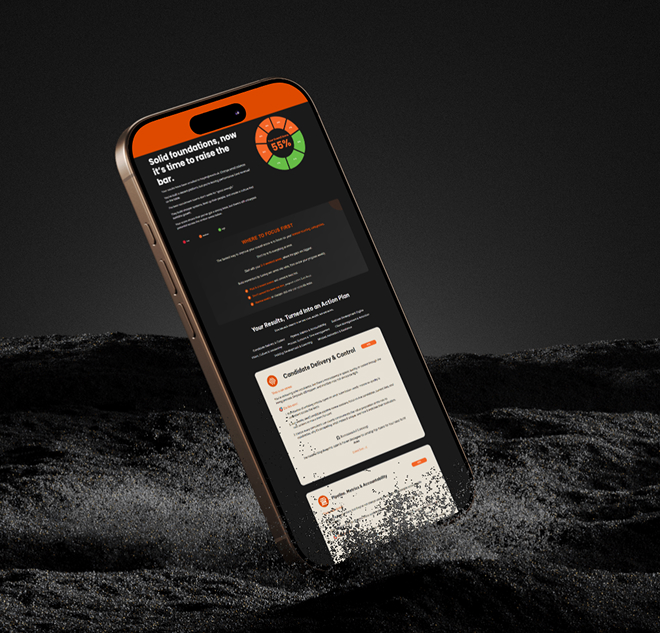Do you know the science behind your success?
Whether you work in a KPI-heavy environment or not, there’s no denying that your success is determined by specific actions you do each day as a recruiter. A lot of recruiters will know the classic KPI of dial-outs or placements made, but it can be easy to lean on these “standard” KPIs and forget that there are multiple actions in-between that contribute to your success!
Consistency and success come from defining a set of KPIs as a formula that works for you. Turnover in recruitment is high, and I’m a firm believer that a contributing factor is KPIs and targets that demotivate rather than yielding the best results.
If you know the science behind your success – you probably have a great formula that works for you. But, if you don’t – it’s time to start thinking outside the box and finding KPIs that bring the best out in you, not the worst.
Below I’m going to talk about 5 KPIs and how they can contribute to your success (when used in the right way!). Also, I’m going to share some advice for current and aspiring managers on how to set KPIs, and why it’s crucial that they’re motivational, and most importantly, personalised.
Phone time/dial outs
This is a KPI I remember vividly in my first few years in recruitment, and I know a lot of you will be reading this thinking, “ah yes, the first KPI I was ever introduced to” – and it’s popular for a reason! However, it can often be demotivating if this is the main KPI you used to measure your success.
For a lot of junior recruiters, particularly in “old school” agencies, it can be easy to fall into the trap of making 200+ calls a day to please your manager and appear busy. However, if we modified this KPI and focussed on connected calls instead of how many times you’ve punched a number into the phone, you can start building meaningful relationships sooner rather than later.
The same goes for phone times. Although speaking on the phone is a crucial part of any recruiter’s day, it should be used with other KPIs to measure how successful your day has been.
For example, you’d much rather speak on the phone for 2 hours in a day and have 15 connected calls, than speak for 2 hours a day making 100+ dial-outs and just leaving voicemails. Of course, there will be days when that happens – but if you make your goal focussed around connected calls, you can be more strategic with booking calls in advance, which will only pay dividends later on down the line.
Business development calls
Similar to dial-outs and connected calls, most recruiters I’ve had on the podcast speak about the importance of factoring in business development time into their diaries every single day. Even if you’re in the early stages of your career, measuring how many business development calls you make is an excellent KPI to track.
If you’re unsuccessful with calls, you could always focus on introductory emails or LinkedIn messages. Also, don’t forget about the power of utilising your candidates as a business development tool, which allows you to embody a double-pronged approach when working on a day-to-day basis.
Bonus tip: The best recruiters who are the most consistent time and time again ALWAYS make time for BD in their week even when they are at their busiest. Keep BD in your weekly plan, and you’ll be more consistent.
Client meetings booked
Client meetings are so powerful, and something that I’ve spoken about in previous newsletters. Whether it’s a virtual meeting via Zoom, or an in-person coffee or lunch meeting; tracking the number of client meetings you have booked can help you to see the medium and long-term efforts of business development.
So, even if you have a day that is considered “unsuccessful” in terms of interviews, or even business development calls – you have another KPI to measure and hold yourself accountable for!
If you want some more information on how to secure a client meeting, read our blog here.
Placed candidate retention
I absolutely love this KPI, and it was mentioned on a recent podcast I recorded {will insert the name here and a link when it’s live}. It can be easy to solely focus on making placements and putting numbers on the board, when in reality you should also be measuring how successful your candidates are after you place them in a role.
Not only is this a great KPI to measure, so you can continue to do repeat business with a client, but it’s also a great metric to present on new business development calls to show that you produce exceptional results.
Repeat business
As previously mentioned, business development is a common area that all recruiters want to improve in, and a recurring theme on the podcast and in our community is the importance of repeat business!
Spot business and winning new clients always come with a thrill, but in the long term, it’s unsustainable. Focussing on nurturing your clients to acquire repeat business can be an excellent KPI to measure, as it will allow you to form a true partnership and also have a steadier desk.
Managers, do you lead with a carrot or with a stick?
KPIs are an excellent way for managers to have complete visibility on team performance, but are you using KPIs as a carrot or as a stick?
This age-old saying is to do with management styles, and there will be recruiters who love being led with a stick (tough love) as it motivates them, and there will be recruiters who prefer to be led with a carrot (nurturing and reward).
Managing people, as you may already know, isn’t as black and white as this, and I believe that equal parts carrot and stick can be a great way to get the best out of your team.
To do this, you need to see KPIs as a small part of who someone is in your team, rather than using them as the only way you measure success.
Sure, numbers are important and hitting targets is all part of being a recruiter, but it shouldn’t be the only way you measure success.
For example, if you have a consultant who is smashing their KPIs but isn’t a team player, has a bad attitude and doesn’t get involved in the culture of the business – would you still want them in your team?
Or, would you want the person who is struggling in certain areas but brings all the soft skills you’d want from a successful recruiter?
In summary, as a manager, setting personalised KPIs that play to the strengths of your team will allow you to yield better results, achieve better retention, and ultimately have stronger relationships with those you are managing.


